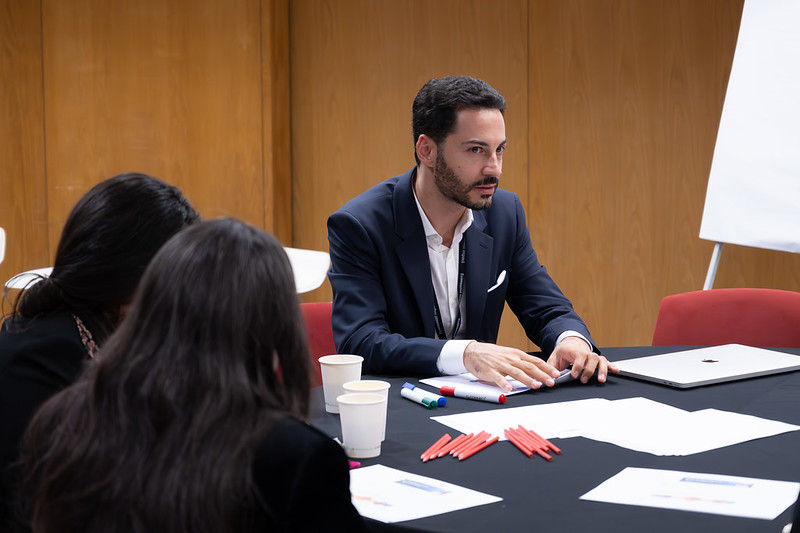Technology Innovation and Entrepreneurship Tackling Global Challenges
I currently lead the Blackstone Launchpad powered by Techstars, and teach entrepreneurship as well as advise startups and academic leaders at the University of California, Santa Cruz.
Through the Blackstone Launchpad powered by Techstars, my colleagues and I help founders build pre-seed/seed startups by providing them with early funding, mentorship, access to networks and more. We support AI, deep tech, and other technology ventures that emerge from academic labs and programs and address global challenges in climate, health, and society. Our alumni have presented their startups at major events such as CES and have raised capital from top investors such as Y Combinator and Kleiner Perkins.
I also advise startup founders and academic leaders, and have taught several innovation and entrepreneurship courses at UCSC. Jointly with a stellar team of ocean science, technology, and entrepreneurship experts, I currently teach "Hacking for Oceans", the first-ever lean startup course focused on coastal and ocean-related issues. We have partnered with NOAA, WWF, the Nature Conservancy and other organizations to source problems and field experts from around the world. Hacking for Oceans is currently offered to all UC students as a UC system-wide online course, and its model inspired the Future of Sustainability Education Panel at the 2021 Nobel Prize Summit.
Through QB3, I advise faculty/student founders of AI and deep tech startups in health, energy, and materials, and contribute to workforce development and translational research efforts at UCSC, and to multi-campus collaborations such as the QB3 hackathon at UCSF, and UC system initiatives such as the Bioengineering Institute of California. QB3 is the University of California’s hub for innovation and entrepreneurship in biotech, energy, and materials. With five incubators, two seed-stage venture capital firms, the Rosenman Institute and three centers at UC Berkeley, San Francisco, and Santa Cruz, QB3 helps UC faculty & students to launch startups that so far have created more than 17,000 jobs and raised more than $13 billion in capital.
A few years ago, I joined the UC Office of the President's Innovation & Entrepreneurship Initiative, aimed at enabling the UC system to continue creating bold solutions to today’s biggest global challenges by turning discoveries and ideas into innovations and ventures. In light of such a long-term commitment, I have participated in UC system meetings and groups to discuss priorities such as AI, venture creation, accelerators, strategic partnerships, technology transfer, infrastructure, and more. I have also participated in Born in California, the annual event where the top UC startups pitch to U.S. investors.
To conclude, I've trained as well as funded academic entrepreneurs through the National Science Foundation's Innovation Corps (I-Corps) site program, which helps students and faculty to turn scientific discoveries and ideas into startups. Thanks to the generous funding made available by the NSF, my colleagues and I have selected and funded promising ventures, and many of them end up applying for additional NSF funding later on. An outstanding example of NSF-funded startups that I often refer to is Cruz Foam, a climate tech venture that also raised capital from Leo DiCaprio, Ashton Kutcher, and other top investors. The startup made it into Time magazine's Best Inventions of 2023 and Fast Company’s Most Innovative Companies of 2024.
Fast Company covered some of the ideas I've been championing in the realm of innovation, entrepreneurship, and higher education (here and here). The Born in California team at UC Irvine also covered some of the work various colleagues and I have done to help turn science into deep tech startups and raise capital from investors. AACSB covered Hacking for Oceans at its outset, and greatly showcased the value of experiential education. These are just brief snippets of my ongoing work — if you'd like to learn more or discuss your ideas, please do not hesitate to contact me.








